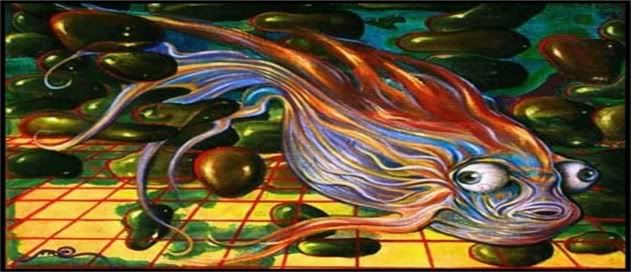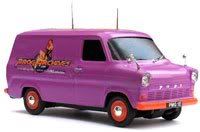/PAlogo_v2.gif) |
|
Post Reply 
|
Page <123 |
| Author | ||||||||||||||||
oliverstoned 
Special Collaborator 

Honorary Collaborator Joined: March 26 2004 Location: France Status: Offline Points: 6308 |
 Posted: November 13 2006 at 10:08 Posted: November 13 2006 at 10:08 |
|||||||||||||||
|
You can, indeed, cause it's based on experience and not on smoky theories!
Edited by oliverstoned - November 14 2006 at 12:59 |
||||||||||||||||
 |
||||||||||||||||
MikeEnRegalia 
Special Collaborator 

Honorary Collaborator Joined: April 22 2005 Location: Sweden Status: Offline Points: 21820 |
 Posted: November 13 2006 at 10:19 Posted: November 13 2006 at 10:19 |
|||||||||||||||
|
BTW: I bought a nice vinyl album today:
  |
||||||||||||||||
 |
||||||||||||||||
Tyrant 
Forum Groupie 
Joined: August 19 2005 Location: Norway Status: Offline Points: 66 |
 Posted: November 14 2006 at 12:50 Posted: November 14 2006 at 12:50 |
|||||||||||||||
|
I do not understand how anyone can say that it's impossible to hear the sound difference between CDs and SACDs! The sound in the latter is in 5 channels, as opposed to the formers 2. It is very easy to hear the sound difference. Which is better, can be debated though. DVD-Audio is generally believed to be a format of better sound quality. Unfortunately, very few music recordings are available in this format.
It also surprises me that many hasn't heard about the fact that people can perceive (not hear) sounds of higher frequencies than 20 000 Hz. I thought this was a well known fact. It was even stated in my high school physics book.
But of course, the difference in sound quality between analog and digital sound cannot be explained solely by Hz-bandwidth. Check out this article for more:
Edited by Tyrant - November 14 2006 at 12:52 |
||||||||||||||||
 |
||||||||||||||||
MikeEnRegalia 
Special Collaborator 

Honorary Collaborator Joined: April 22 2005 Location: Sweden Status: Offline Points: 21820 |
 Posted: November 14 2006 at 12:55 Posted: November 14 2006 at 12:55 |
|||||||||||||||
|
1. When comparing CD and SACD we're obviously talking about 2 channel SACDs ... of course it would not make much sense to compare 2-channel and 5.1-channel sources.
2. Even if people can *perceive* frequencies higher than 20,000 Hz - I doubt that this perception registers as "music". Frequencies below 20 Hz are also not "heard", only felt (as vibrations). And let's not forget that those frequencies aren't recorded on vinyl and cassettes, media which audiophiles value so highly. So these frequencies can hardly be what supposedly makes analog so great ...  |
||||||||||||||||
 |
||||||||||||||||
oliverstoned 
Special Collaborator 

Honorary Collaborator Joined: March 26 2004 Location: France Status: Offline Points: 6308 |
 Posted: November 14 2006 at 12:57 Posted: November 14 2006 at 12:57 |
|||||||||||||||
|
Thanks for that clear explanation which points out digital big weakness which is info missing. Concerning the SACD issue, i'm not in favor of 5 channel, nothing can equals 2 channels IMO(with a sub if you like), on all criterias, especially the image which appears to be less focused and precise with 5 channel. Edited by oliverstoned - November 14 2006 at 12:57 |
||||||||||||||||
 |
||||||||||||||||
Tyrant 
Forum Groupie 
Joined: August 19 2005 Location: Norway Status: Offline Points: 66 |
 Posted: November 14 2006 at 14:06 Posted: November 14 2006 at 14:06 |
|||||||||||||||
Hmm, there must be something wrong with the link. I'll try to copy and paste the content. Here:
The answer lies in the difference between analog and digital recordings. A vinyl record is an analog recording, and CDs and DVDs are digital recordings. Take a look at the graph below. Original sound is analog by definition. A digital recording takes snapshots of the analog signal at a certain rate (for CDs it is 44,100 times per second) and measures each snapshot with a certain accuracy (for CDs it is 16-bit, which means the value must be one of 65,536 possible values). This means that, by definition, a digital recording is not capturing the complete sound wave. It is approximating it with a series of steps. Some sounds that have very quick transitions, such as a drum beat or a trumpet's tone, will be distorted because they change too quickly for the sample rate. In your home stereo the CD or DVD player takes this digital recording and converts it to an analog signal, which is fed to your amplifier. The amplifier then raises the voltage of the signal to a level powerful enough to drive your speaker. A vinyl record has a groove carved into it that mirrors the original sound's waveform. This means that no information is lost. The output of a record player is analog. It can be fed directly to your amplifier with no conversion. This means that the waveforms from a vinyl recording can be much more accurate, and that can be heard in the richness of the sound. But there is a downside, any specks of dust or damage to the disc can be heard as noise or static. During quiet spots in songs this noise may be heard over the music. Digital recordings don't degrade over time, and if the digital recording contains silence, then there will be no noise. From the graph above you can see that CD quality audio does not do a very good job of replicating the original signal. The main ways to improve the quality of a digital recording are to increase the sampling rate and to increase the accuracy of the sampling. The recording industry has a new standard for DVD audio discs that will greatly improve the sound quality. The table below lists the sampling rate and the accuracy for CD recordings, and the maximum sampling rate and accuracy for DVD recordings. DVDs can hold 74 minutes of music at their highest quality level. CDs can also hold 74 minutes of music. By lowering either the sampling rate or the accuracy, DVDs can hold more music. For instance a DVD can hold almost 7 hours of CD quality audio.
|
||||||||||||||||
 |
||||||||||||||||
MikeEnRegalia 
Special Collaborator 

Honorary Collaborator Joined: April 22 2005 Location: Sweden Status: Offline Points: 21820 |
 Posted: November 14 2006 at 14:17 Posted: November 14 2006 at 14:17 |
|||||||||||||||
|
"This means that, by definition, a digital recording is not capturing the complete sound wave. It is approximating it with a series of steps. Some sounds that have very quick transitions, such as a drum beat or a trumpet's tone, will be distorted because they change too quickly for the sample rate." That's a load of bullsh*t (sorry). The human ear has certain limits as far as frequency is concerned, and modern digital recording systems are well beyond that level. "In your home stereo the CD or DVD player takes this digital recording and converts it to an analog signal, which is fed to your amplifier. The amplifier then raises the voltage of the signal to a level powerful enough to drive your speaker. A vinyl record has a groove carved into it that mirrors the original sound's waveform. This means that no information is lost." Another outrageous piece of misinformation. Of course information is always lost in analog recording processes ... there is no such thing as a perfect analog copy. "The output of a record player is analog. It can be fed directly to your amplifier with no conversion." The crap continues ... of course there's conversion happening. First the movement of the stylus needs to be converted into an electric signal, and then that signal needs to be boosted and the frequency corrected. During all of this, of course information is lost. "This means that the waveforms from a vinyl recording can be much more accurate, and that can be heard in the richness of the sound. But there is a downside, any specks of dust or damage to the disc can be heard as noise or static. During quiet spots in songs this noise may be heard over the music. Digital recordings don't degrade over time, and if the digital recording contains silence, then there will be no noise." Wow - thanks for admitting that there may actually be downsides to analog technology.
"From the graph above you can see that CD quality audio does not do a very good job of replicating the original signal. The main ways to improve the quality of a digital recording are to increase the sampling rate and to increase the accuracy of the sampling." These types of graphs are hugely misleading because they suggest that the human ear can actually hear these frequencies. Go to a pet store, buy a dog whistle and test if you can hear it (not a "fake" one which also produces audible low-range frequencies). Edited by MikeEnRegalia - November 14 2006 at 14:20 |
||||||||||||||||
 |
||||||||||||||||
Viajero Astral 
Forum Senior Member 

Joined: January 16 2006 Location: Mexico Status: Offline Points: 3118 |
 Posted: November 21 2006 at 01:19 Posted: November 21 2006 at 01:19 |
|||||||||||||||
Dont worry, the new Laser TV will change that http://www.itwire.com.au/content/view/6216/52/ |
||||||||||||||||

|
||||||||||||||||
 |
||||||||||||||||
Chus 
Prog Reviewer 
Joined: October 16 2006 Location: Venezuela Status: Offline Points: 1991 |
 Posted: November 21 2006 at 22:26 Posted: November 21 2006 at 22:26 |
|||||||||||||||
|
I kinda like the muddy sound of the LP... for me it's another ingredient of the music (sometimes).. but CD's are far more reliable
|
||||||||||||||||
|
Jesus Gabriel
|
||||||||||||||||
 |
||||||||||||||||
tardis 
Forum Senior Member 
Joined: October 02 2005 Location: Victoria, BC Status: Offline Points: 14378 |
 Posted: November 22 2006 at 17:49 Posted: November 22 2006 at 17:49 |
|||||||||||||||
|
Vinyl
|
||||||||||||||||
 |
||||||||||||||||
Paradox 
Forum Senior Member 

Joined: October 07 2004 Location: England Status: Offline Points: 1059 |
 Posted: November 23 2006 at 11:44 Posted: November 23 2006 at 11:44 |
|||||||||||||||
I agree with you. However, the sound of vinyl is great too, but in a different way than with a CD. |
||||||||||||||||

|
||||||||||||||||
 |
||||||||||||||||
Paradox 
Forum Senior Member 

Joined: October 07 2004 Location: England Status: Offline Points: 1059 |
 Posted: November 23 2006 at 11:46 Posted: November 23 2006 at 11:46 |
|||||||||||||||
|
I have a couple of SACDs (Weather Report's Heavy Weather and Roger Waters - In The Flesh: Live), but I don't have a SACD player. Where on earth would I find one?
Edited by Paradox - November 23 2006 at 11:47 |
||||||||||||||||

|
||||||||||||||||
 |
||||||||||||||||
Neil 
Forum Senior Member 

Joined: October 04 2006 Location: United Kingdom Status: Offline Points: 1497 |
 Posted: November 23 2006 at 12:00 Posted: November 23 2006 at 12:00 |
|||||||||||||||
|
"From the graph above you can see that CD quality audio does not do a very good job of replicating the original signal. The main ways to improve the quality of a digital recording are to increase the sampling rate and to increase the accuracy of the sampling."
These types of graphs are hugely misleading because they suggest that the human ear can actually hear these frequencies. Go to a pet store, buy a dog whistle and test if you can hear it (not a "fake" one which also produces audible low-range frequencies). Also, you may know of Fourier Analysis. This states that any repeating waveform can be represented by a series of sine waves with phase and amplitude co-efficients. What you tend to get with the digital representation of 16KHz from a CD is close to a square wave. A square wave is quite simple to represent using Fourier transforms. It's quite simply the original frequency (16KHz in this case) minus one third amplitude of the third harmonic (48Khz) plus one fifth amplitude of the fifth harmonic (80KHz) etc etc. If you add these sine waves together you get a square wave (people have been doing this inside synthesisers for years). Now a CD player will have an analogue filter straight after the D to A converter and this will very quickly "roll off" the frequencies above 16KHz. By the time you get to 48KHz (the next important frequency in the square wave) the amplitude of the signal is very low. The fifth harmonic is non existant. The result of this is that the actual output looks very like a 16KHz sine wave, because the harmonics that would make the waveforem square have been filtered out. 
Sorry, can't paste the graph for some reason. Edited by Heavyfreight - November 23 2006 at 12:02 |
||||||||||||||||
|
When people get lost in thought it's often because it's unfamiliar territory.
|
||||||||||||||||
 |
||||||||||||||||
mystic fred 
Special Collaborator 

Honorary Collaborator Joined: March 13 2006 Location: Londinium Status: Offline Points: 4252 |
 Posted: November 23 2006 at 12:05 Posted: November 23 2006 at 12:05 |
|||||||||||||||
VINYL SOUNDING MUDDY??
not on your nelly - you probably need a new hamster!
|
||||||||||||||||
 Prog Archives Tour Van Prog Archives Tour Van 
|
||||||||||||||||
 |
||||||||||||||||
mystic fred 
Special Collaborator 

Honorary Collaborator Joined: March 13 2006 Location: Londinium Status: Offline Points: 4252 |
 Posted: November 23 2006 at 12:07 Posted: November 23 2006 at 12:07 |
|||||||||||||||
 Prog Archives Tour Van Prog Archives Tour Van 
|
||||||||||||||||
 |
||||||||||||||||
MikeEnRegalia 
Special Collaborator 

Honorary Collaborator Joined: April 22 2005 Location: Sweden Status: Offline Points: 21820 |
 Posted: November 23 2006 at 12:48 Posted: November 23 2006 at 12:48 |
|||||||||||||||
|
Heavyfreight:
Yes, I know Fourier Analysis ... it was part of my college exams. Unfortunately most audiophiles will not accept these things ... it's all just "smoky theories" to them. Of course the real evidence for a non-scientist would be to try to hear the difference between 2khz sine and square waveforms (doesn't matter much whether digital or analog), and then the difference between a 16khz analoge sine wave and a 16khz sine wave from a CD. I bet that everybody will be able to tell the 2khz sine/square apart, but not the 16khz test. |
||||||||||||||||
 |
||||||||||||||||
Chus 
Prog Reviewer 
Joined: October 16 2006 Location: Venezuela Status: Offline Points: 1991 |
 Posted: November 23 2006 at 16:46 Posted: November 23 2006 at 16:46 |
|||||||||||||||
hahaha that was perhaps not the word I wanted to use.... I just wanted to say that LP's create a pleasant enviroment... it makes me sleepy
|
||||||||||||||||
|
Jesus Gabriel
|
||||||||||||||||
 |
||||||||||||||||
jalas 
Forum Senior Member 
Joined: September 07 2006 Location: United States Status: Offline Points: 283 |
 Posted: November 28 2006 at 13:48 Posted: November 28 2006 at 13:48 |
|||||||||||||||
|
CDs are better for the sound quality, but album sleeves were better.
|
||||||||||||||||

JOIN THE COMMUNIST PARTY! |
||||||||||||||||
 |
||||||||||||||||
progadicto 
Forum Senior Member 

Joined: July 19 2005 Location: Chile Status: Offline Points: 4316 |
 Posted: November 30 2006 at 01:07 Posted: November 30 2006 at 01:07 |
|||||||||||||||
|
Vinyl... always vinyl... sounds better that a CD if you have the propiate equipment...
|
||||||||||||||||
|
... E N E L B U N K E R...
|
||||||||||||||||
 |
||||||||||||||||
Mandrakeroot 
Forum Senior Member 
Italian Prog Specialist Joined: March 01 2006 Location: San Foca, Friûl Status: Offline Points: 5851 |
 Posted: November 30 2006 at 16:17 Posted: November 30 2006 at 16:17 |
|||||||||||||||
|
CD for new reciords and praticality, Vynil for old records
But I vote for CD!!!
Edited by MANDRAKEROOT - November 30 2006 at 16:17 |
||||||||||||||||
 |
||||||||||||||||
Post Reply 
|
Page <123 |
| Forum Jump | Forum Permissions  You cannot post new topics in this forum You cannot reply to topics in this forum You cannot delete your posts in this forum You cannot edit your posts in this forum You cannot create polls in this forum You cannot vote in polls in this forum |